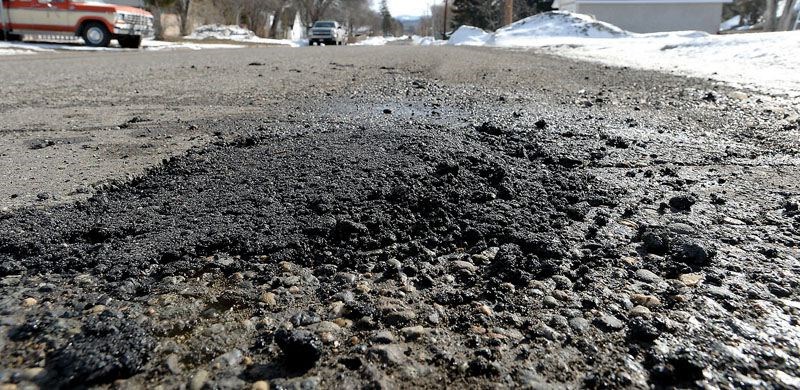The city is patching fewer potholes per year than it used to, according to a report from operations director Bill Gaal.
In 2009, more than 26,000 potholes were repaired on city streets. In 2013, that number was a little more than 15,000, the lowest in five years except for 2011 when around 12,800 holes were filled.
"Over the past years, council has been consistently increasing the road rehabilitation budget and by extension the number of roads that are rehabilitated each year," Gaal wrote in the report being tabled at Monday night's city council meeting.
"As the volume of repaving increases, administration expects a decrease in the number of potholes created on our road network."
This year, there is more than $1 million in the city's budget for asphalt road maintenance.
Crews have been filling potholes since mid-January, Gaal wrote, mostly with cold mix, as hot mix - which is more durable - isn't available until May.
The cold mix "does not adhere to the existing asphalt as well as hot mix and therefore 'pops out' quite easily," Gaal wrote, meaning crews have to return to those potholes when the hot mix is available.
Crews are also able to supplement the cold mix with reheated asphalt.
Weather continues to play a role in the pothole problem, said Gaal and with the current winter season the city is experiencing, "administration expects to see significant potholes this spring."
Especially problematic areas are expected to be on Chief Lake, Lansdowne, North Nechako, and Giscome Roads, Malaspina and Simon Fraser Avenues and Old Caribou Highway.
The majority of the roads causing concern will be on this year's yet-to-be-released list of road rehab projects and those not on that list "will receive increased attention to pothole repairs in efforts to preserve the road surface," Gaal's report said.
Paving projects for 2014 have a budget of $7 million.



